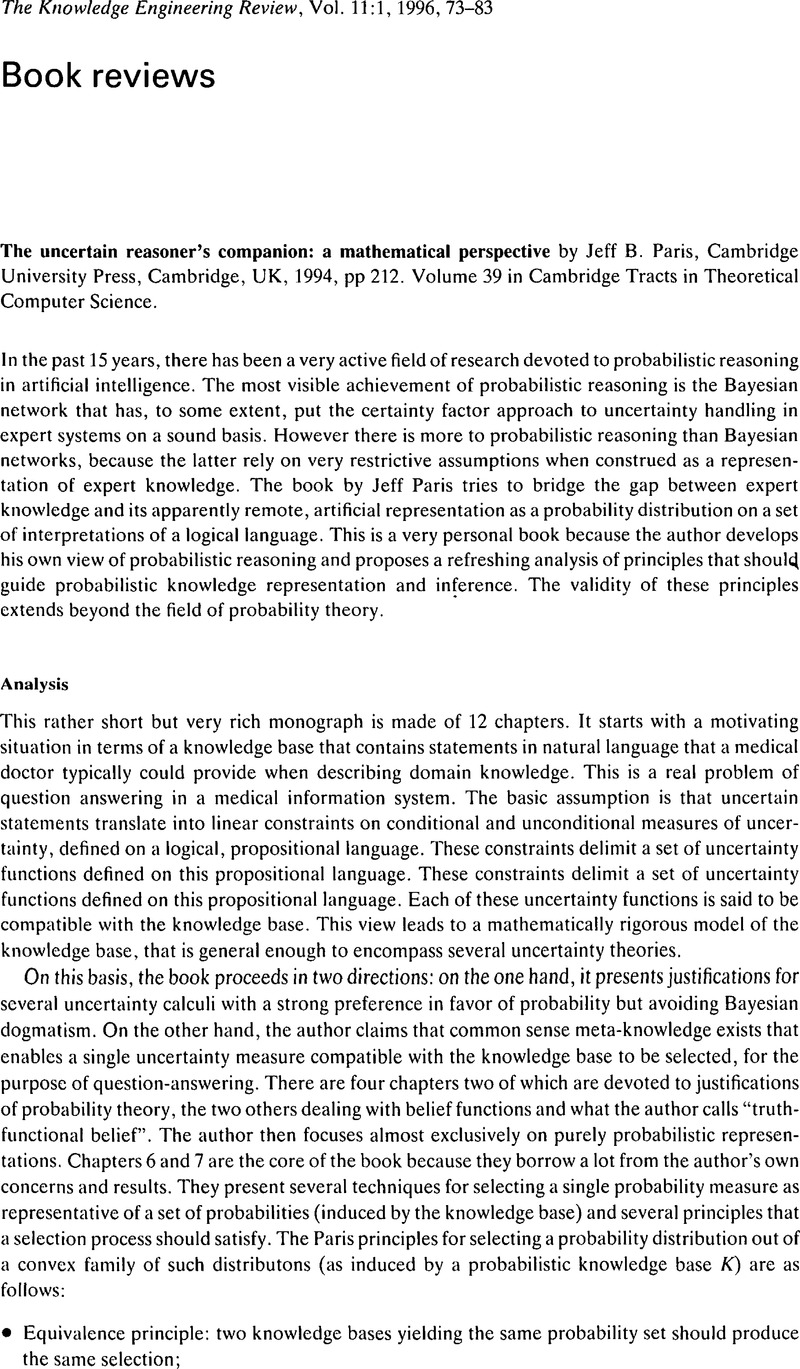Crossref Citations
This article has been cited by the following publications. This list is generated based on data provided by Crossref.
Dubois, Didier
Moral, Serafin
and
Prade, Henri
1998.
Belief Change.
p.
311.



